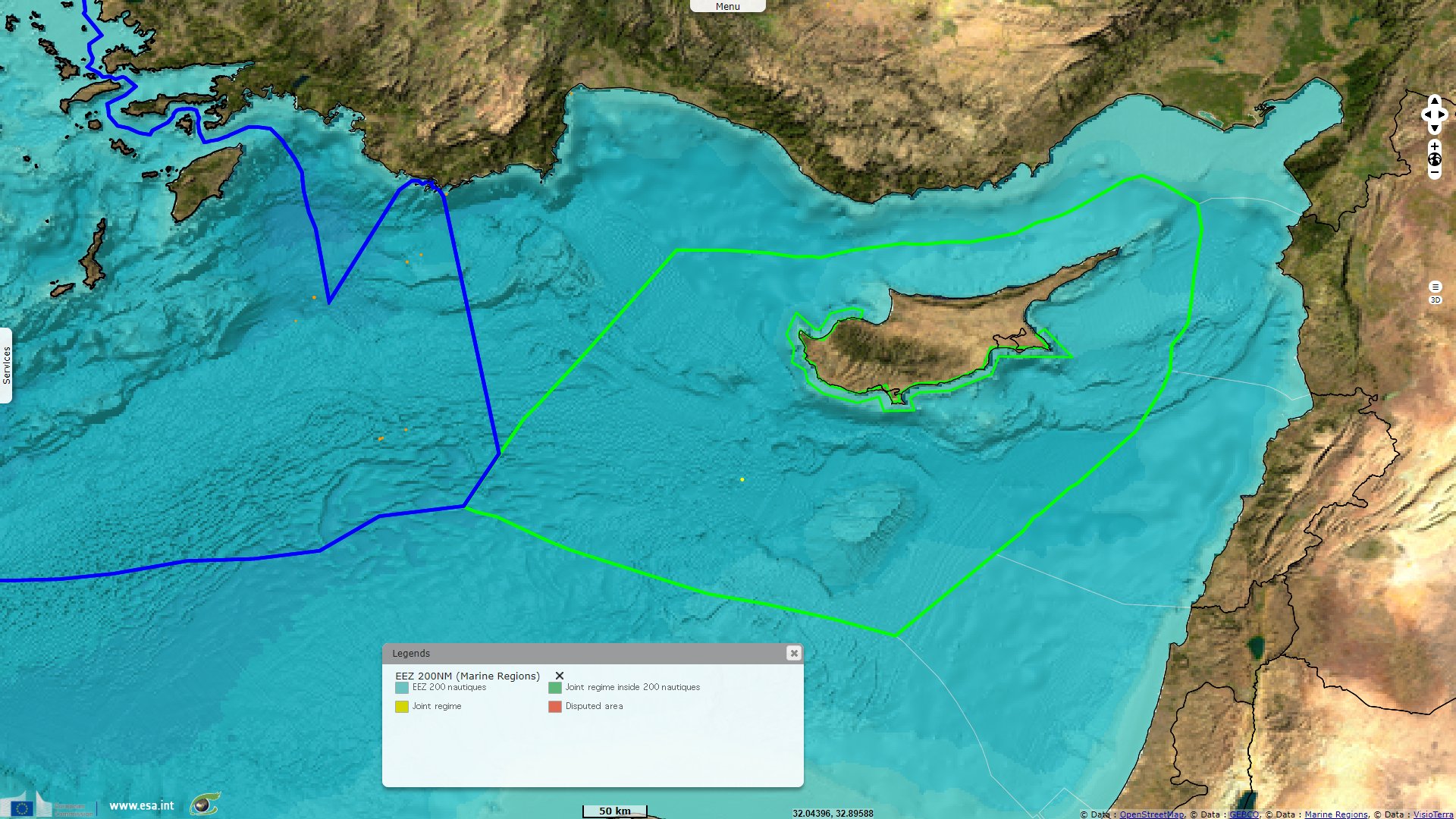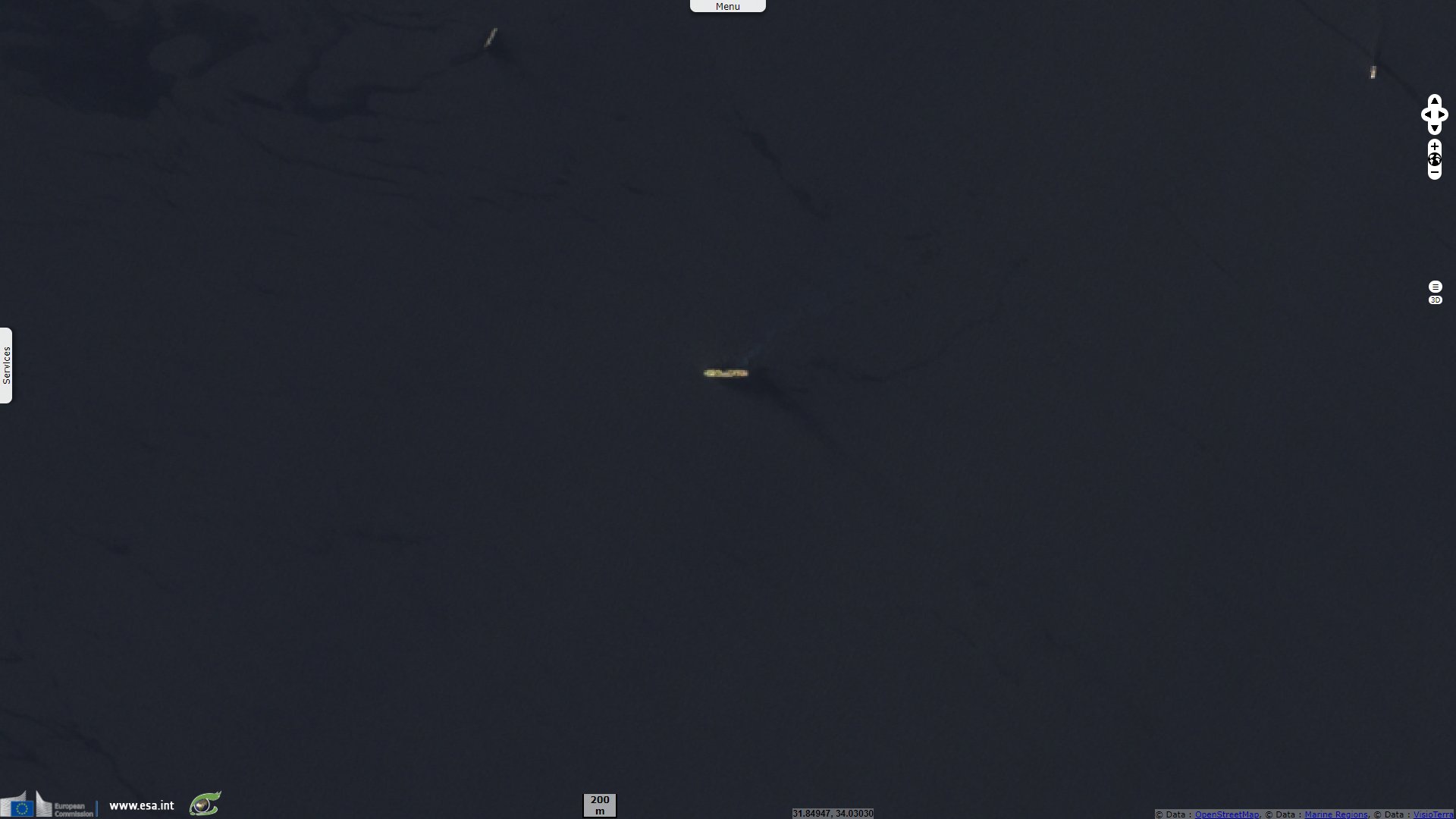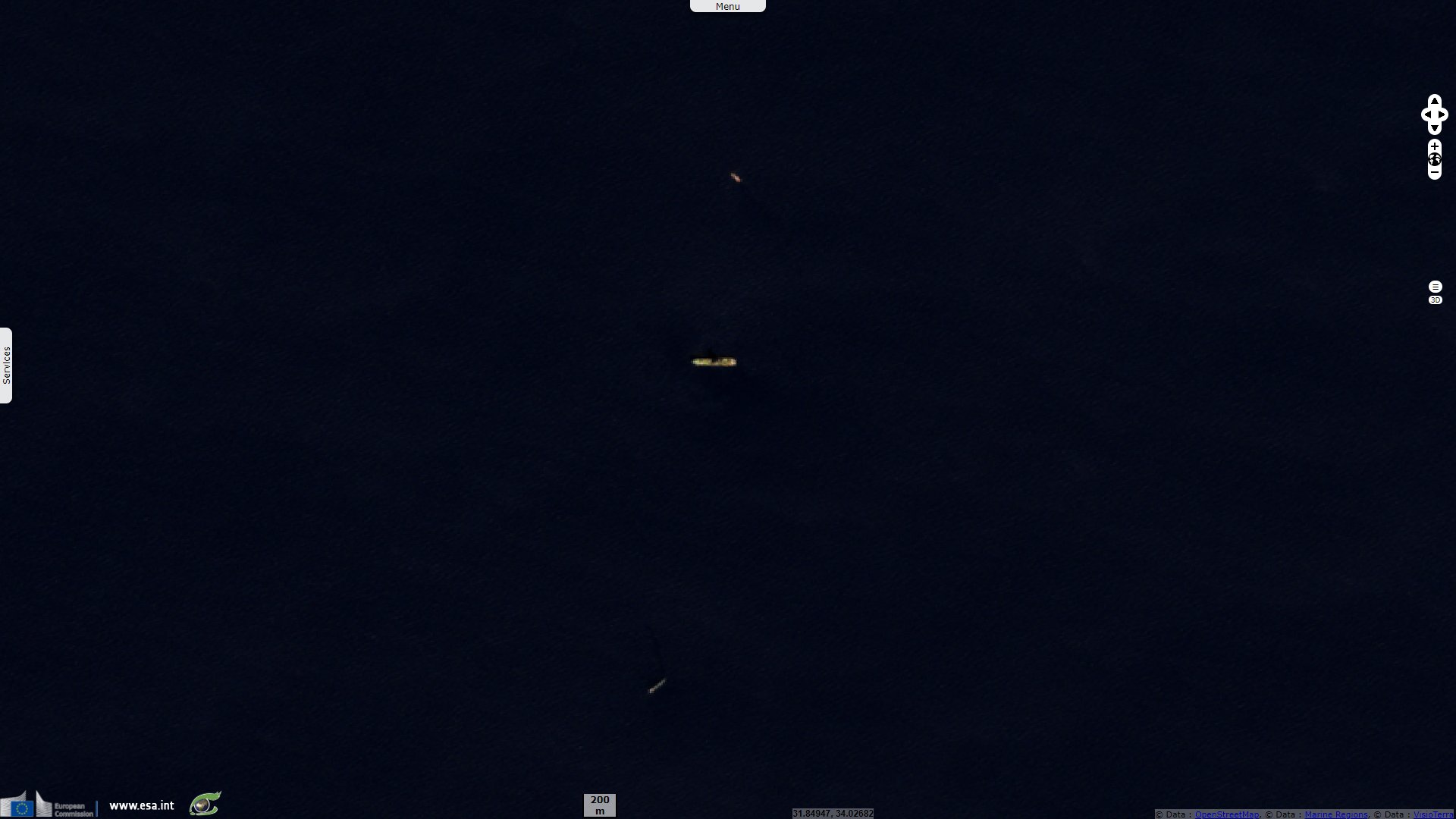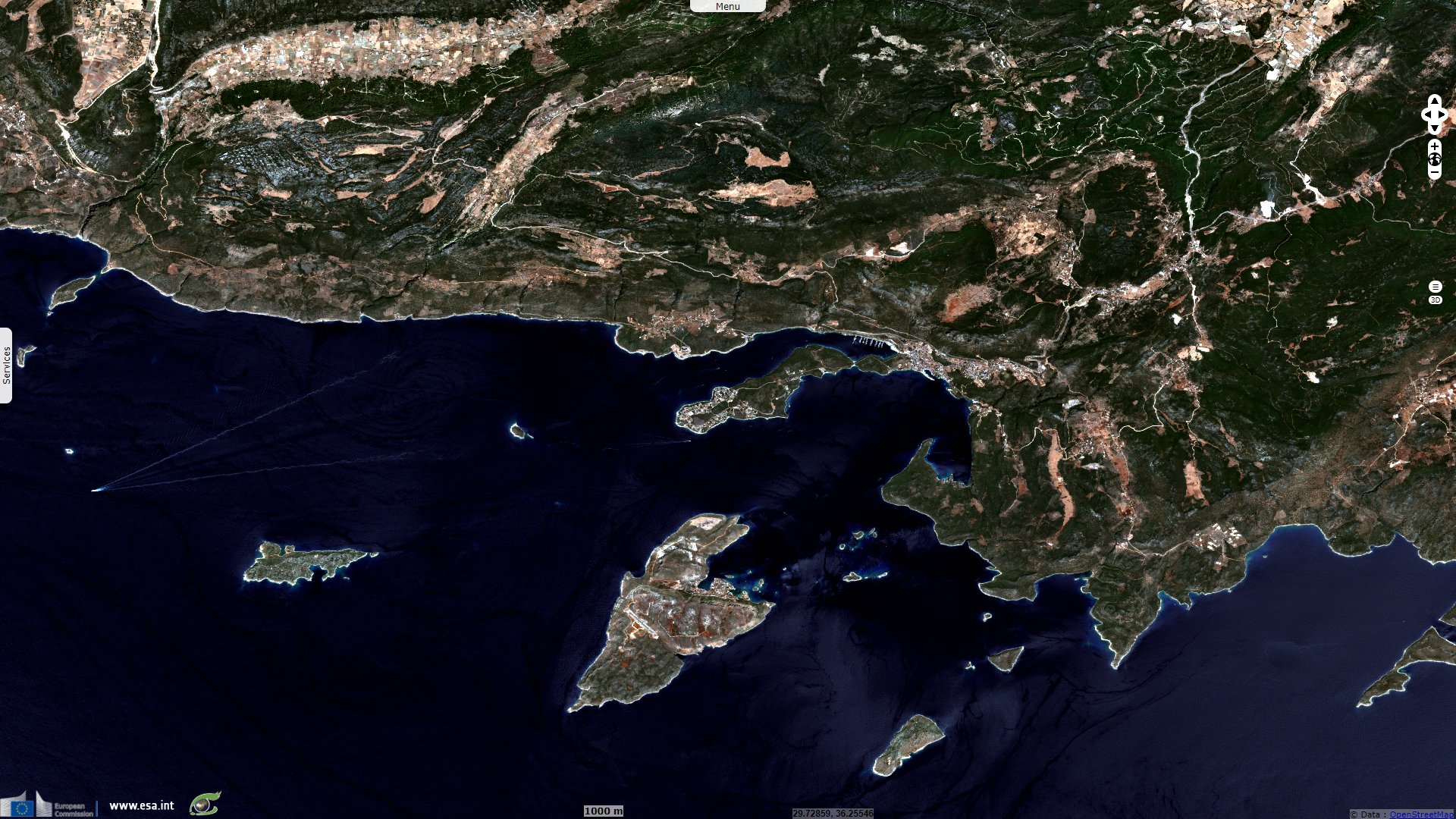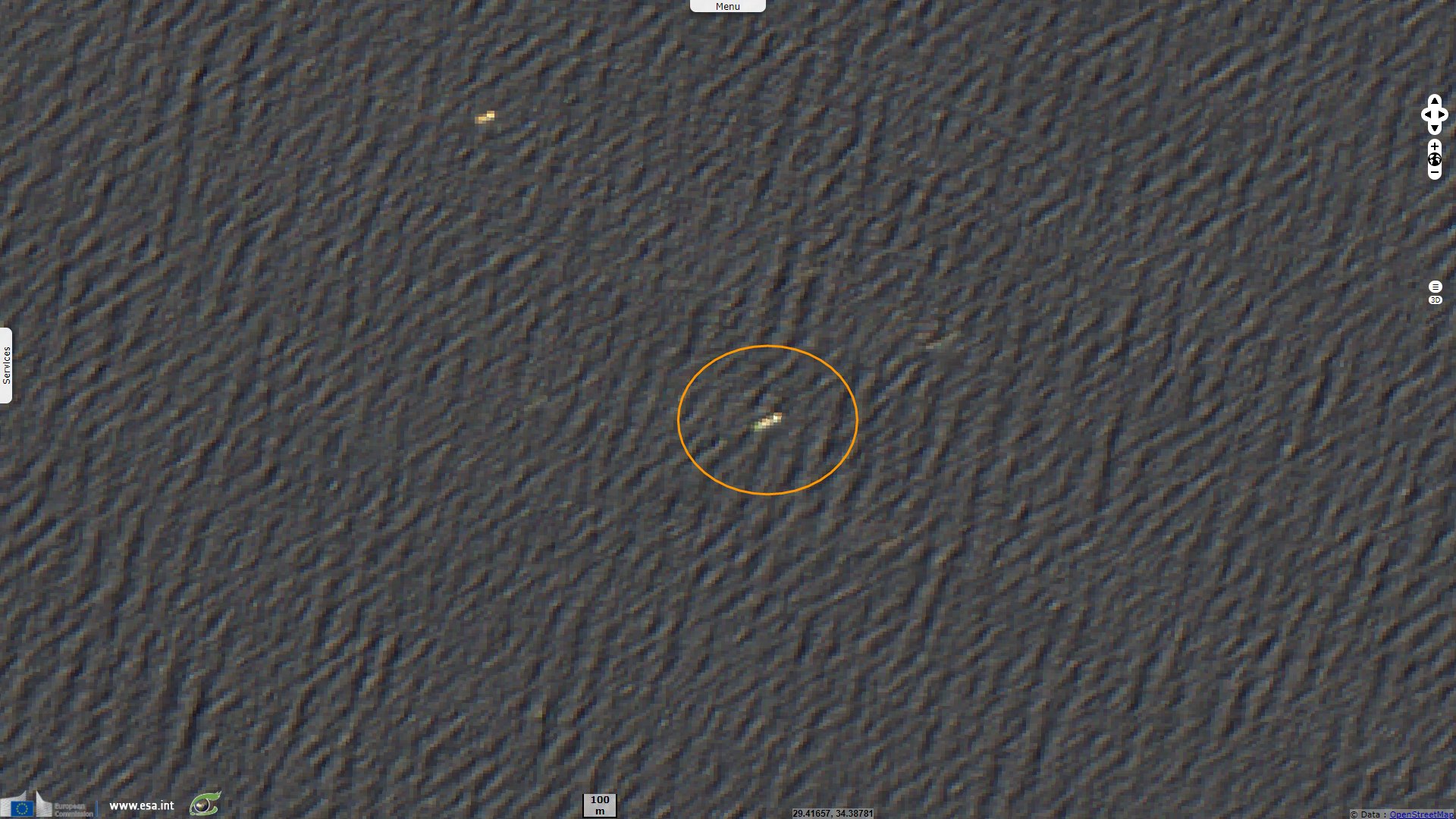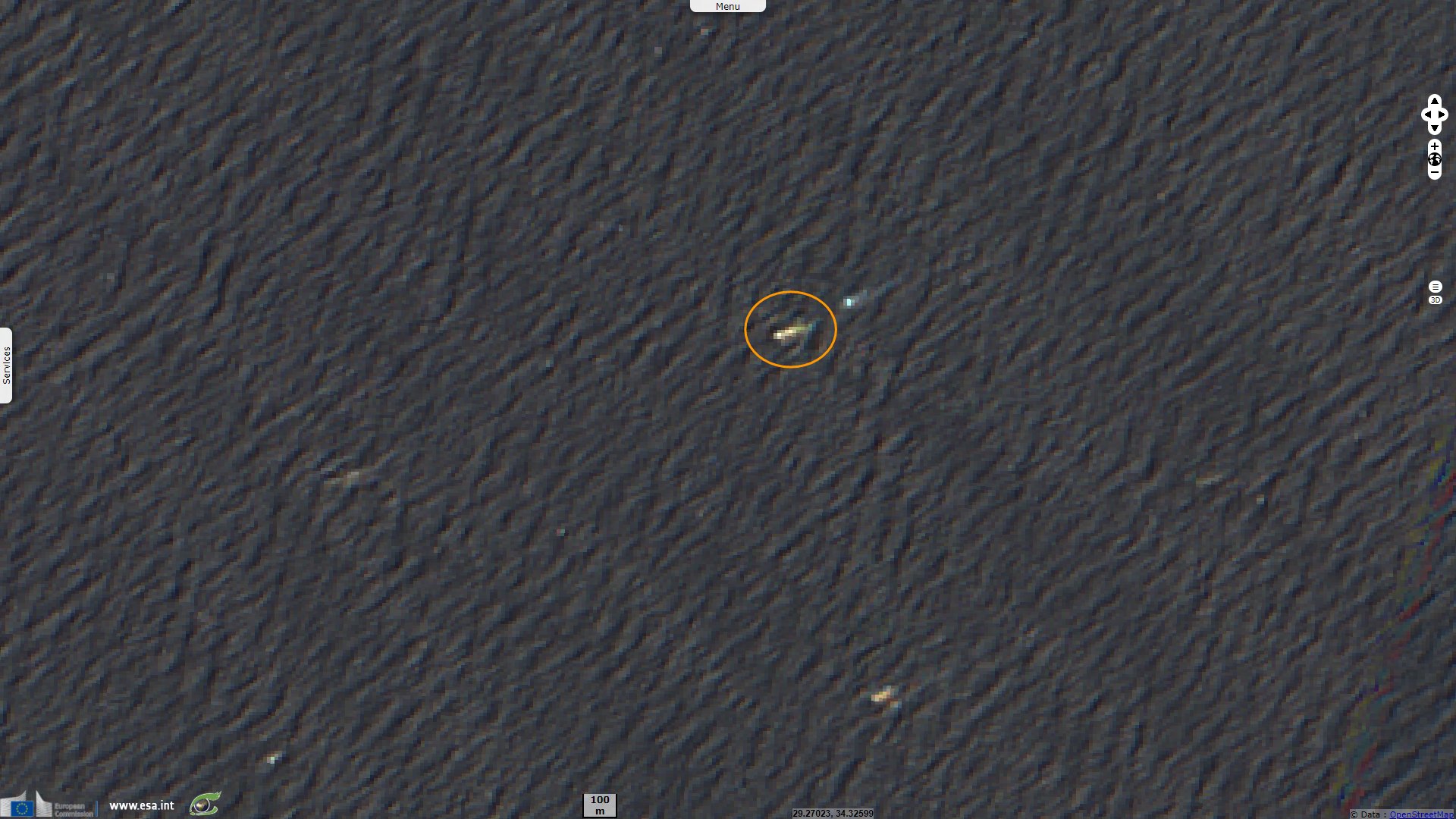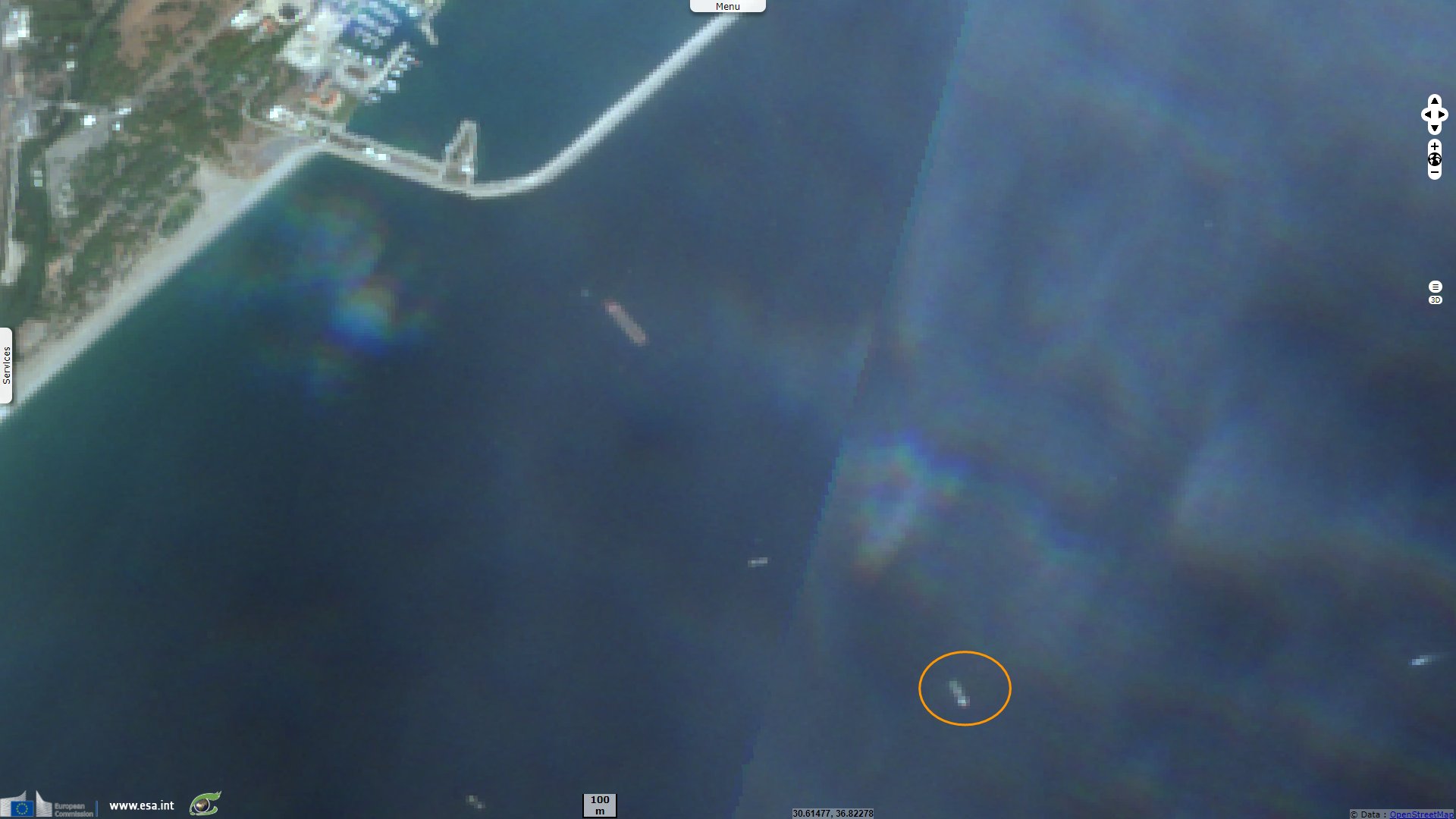Hide and seek in the eastern Mediterranean Sea
Sentinel-1 CSAR IW acquired on 23 April 2020 at 15:49:33 UTC
Sentinel-2 MSI acquired on 12 August 2020 at 08:46:01 UTC
...
Sentinel-2 MSI acquired on 03 October 2020 at 08:37:29 UTC
Sentinel-1 CSAR IW acquired on 08 October 2020 at 15:49:41 UTC
Sentinel-2 MSI acquired on 12 August 2020 at 08:46:01 UTC
...
Sentinel-2 MSI acquired on 03 October 2020 at 08:37:29 UTC
Sentinel-1 CSAR IW acquired on 08 October 2020 at 15:49:41 UTC
Keyword(s): Security, coastal, oil and gas, ship, Turkey, Greece, Cyprus

Exclusive economic zones around Turkey - Source: marineregions.org.
UNCLOS (United Nations Convention on the Law of the Sea) also known as Montego Bay Convention has been signed by 157 countries among 168 parties. It has been signed by Greece and Cyprus but not by Turkey which therefore does not recognise it. The Exclusive Economic Zones (EEZs) can be roughly explained as follows: it extends 200 nautical miles (370 kilometres) from the baseline. Within this area, the coastal nation has sole exploitation rights over all natural resources. In casual use, the term may include the territorial sea and even the continental shelf. The EEZs were introduced to halt the increasingly heated clashes over fishing rights, although oil was also becoming important. The success of an offshore oil platform in the Gulf of Mexico in 1947 was soon repeated elsewhere in the world, and by 1970 it was technically feasible to operate in waters 4,000 metres deep. Foreign nations have the freedom of navigation and overflight, subject to the regulation of the coastal states. Foreign states may also lay submarine pipes and cables.
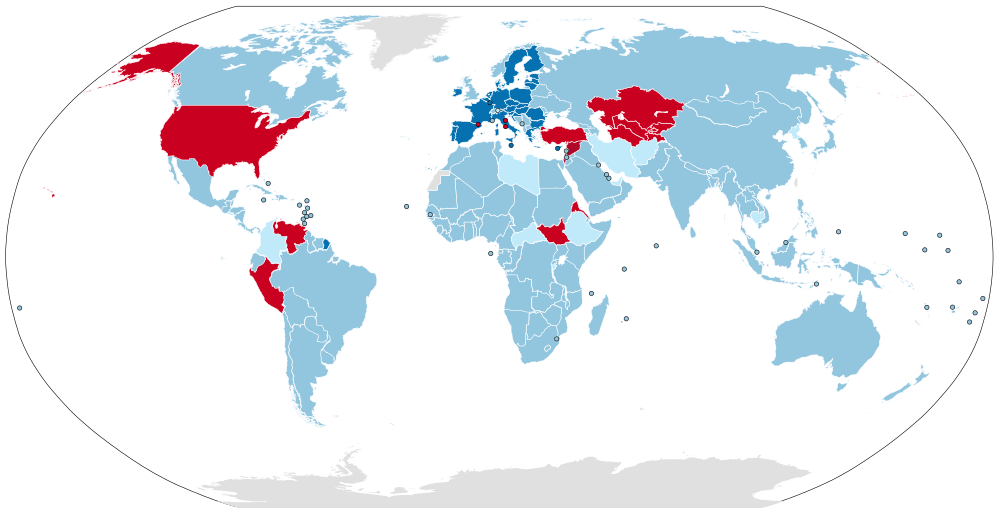

List of parties to the United Nations Convention on the Law of the Sea - Source: WikiMedia.
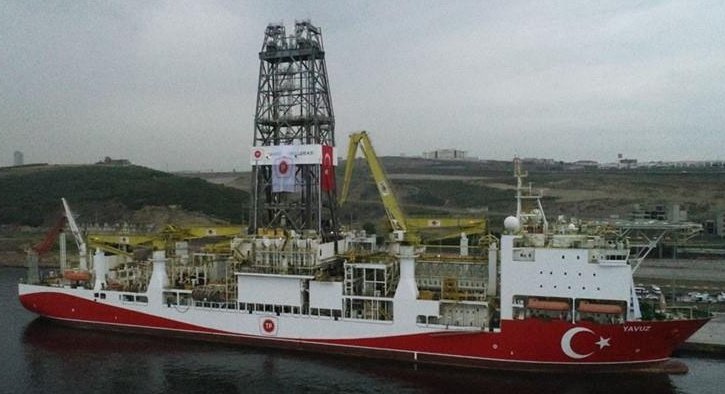
Turkish drilling vessel Yavuz - Source: MarineTraffic
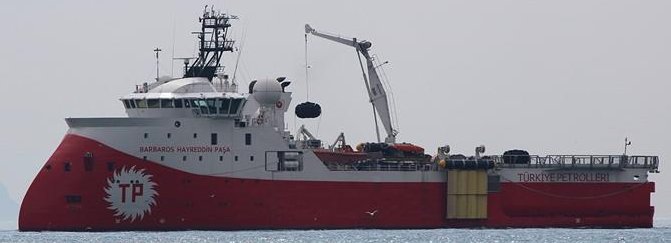
Turkish seismographic research/survey vessel RV Barbaros Hayreddin Paşa - Source: MarineTraffic
According to the Cyprus mail: "Ankara has on several occasions sent its seismic research vessel Barbaros to Cyprus’ EEZ following Cyprus’ decision in 2011 to start exploratory offshore drilling.
After May 2019, Turkey caused a stir by sending consecutively two drill ships, Fatih and Yavuz, to conduct unauthorised drilling activities of hydrocarbons in the Eastern Mediterranean, at times in areas licensed by Cyprus to international energy companies."
Greek-Cypriot media Kathimerini wrote: "Turkish drilling vessel Yavuz has left Block 6 inside Cyprus’ exclusive economic zone (EEZ) in a move seen as a step toward a possible de-escalation of tensions. Yavuz was reportedly near the port of Tasucu in Turkey's Mersin province on Monday morning.
The vessel had been scheduled to leave the sea area southwest of the ethnically-split island on October 12, according to Turkey’s unauthorized navigational telex (Navtex). Nicosia is meanwhile monitoring the operations of Turkey’s seismic research vessel Barbaros Hayrettin Pasa in Block 3 southeast of Cyprus. The Navtex for Barbaros expires on October 18."
Reuters commented in another article: "The dispute stems from overlapping claims to regional waters linked to the split of the island between Greek and Turkish Cypriots. A breakaway Turkish Cypriot state in north Cyprus is recognised only by Ankara. Turkey questions Cyprus’ right to explore in the seas around the island because it maintains that the Nicosia administration does not represent the interests of Turkish Cypriots. That argument is dismissed by Cyprus, which is legally recognised as representing the entire island."
Reuters added in another article: "EU member Cyprus’ internationally recognised Greek Cypriot government has long been at loggerheads with Turkey over the demarcation of maritime waters and other issues. Turkish vessels began drilling for oil and gas near Cyprus last year. EU leaders last Friday assured Cyprus the bloc would punish Turkey if it continues drilling in disputed Mediterranean areas, after resisting Cypriot calls to impose sanctions on Ankara. The Yavuz was to be operating southwest of Cyprus until Oct. 12. Greece, a close ally of Cyprus, had called the work provocative."
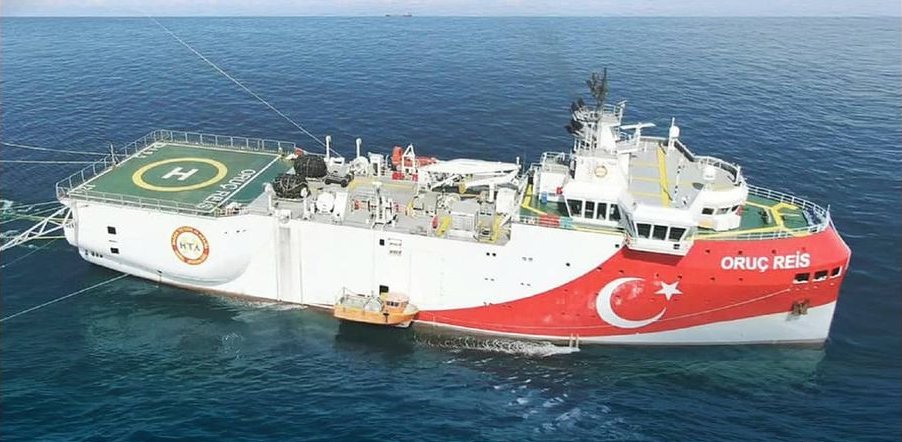

Turkish seismographic research/survey vessel Oruc Reis - Source: Teknopark Istanbul
But soon after Yavuz had left Cyprus ZEE to avoid sanctions, the site another would soon replace it, turkishpress.com reported: "Turkey’s seismic research vessel, Barbaros Hayreddin Pasa will continue its activities in the Eastern Mediterranean between Oct. 10 and Nov. 9. Turkey issued a Navtex (navigational telex) on Friday announcing an extension to the Barbaros Hayreddin Pasa’s research activities with 'Tanux-1' and 'Apollo Moon' vessels."
Turkey also runs seismic survey in Greek EEZ looking for oil and gas resources, reminds France Info: Since 10th August, Ankara has deployed the seismic ship Oruç Reis and an escort of Turkish warships to prospect an area rich in hydrocarbons, off the Greek island of Kastellorizo and 2 km from the Turkish coast. Turkey is also prospecting in the waters of the Republic of Cyprus, an EU country which it has not recognised since the partition of the island in 1974.
France Info adds in another article: Moreover, the current President of Turkey questions the treaties of Lausanne (1923) and Paris (1947), which had defined the borders and the division of waters between Turkey and Greece.
Twice, in mid-July and August, Ankara sent the ship Oruç Reis to the Eastern Mediterranean to explore the seabed for gas deposits. But this ship did not go alone, it was escorted by warships that the islanders saw off the Greek islands.
Olivier Delorme, a specialist in the Balkans and Greece comments: Turkey is today in latent conflict with more or less all its neighbours. It has supported Daesh, laundered its oil money, shot the Kurds in the back, recycled what remains of the Daesh and Al Qaeda terrorists into substitutes and spread them in Libya, in the Caucasus where Azerbaijan, pushed by Ankara, is reviving the war against Armenia - probably also among the migrants (few today are refugees) that it has launched against the Greek islands or land border.
